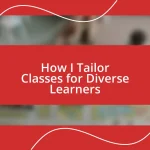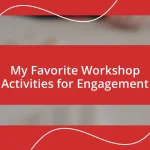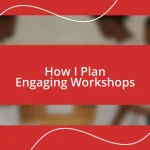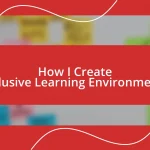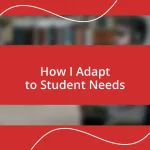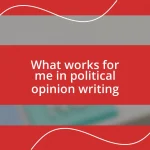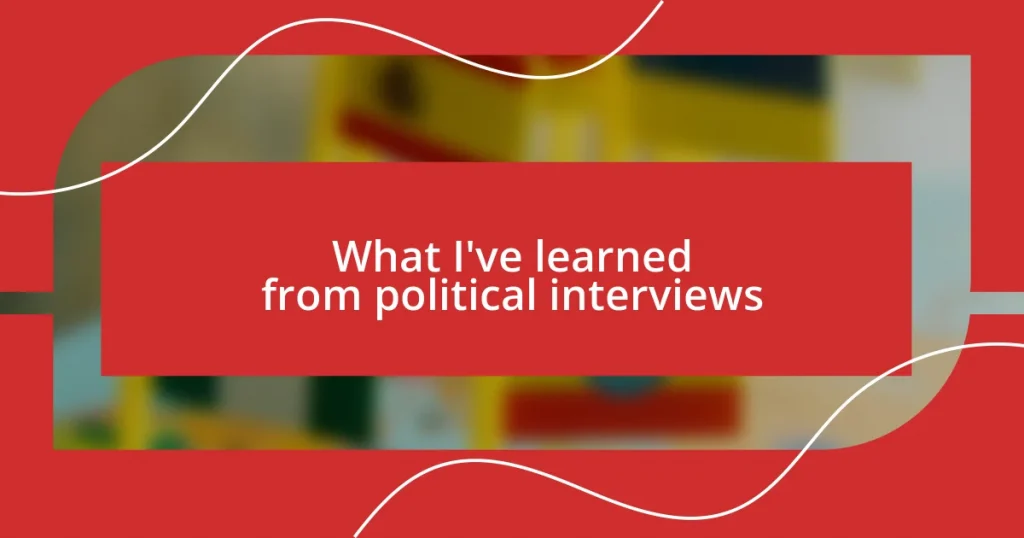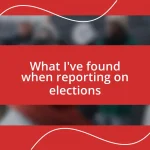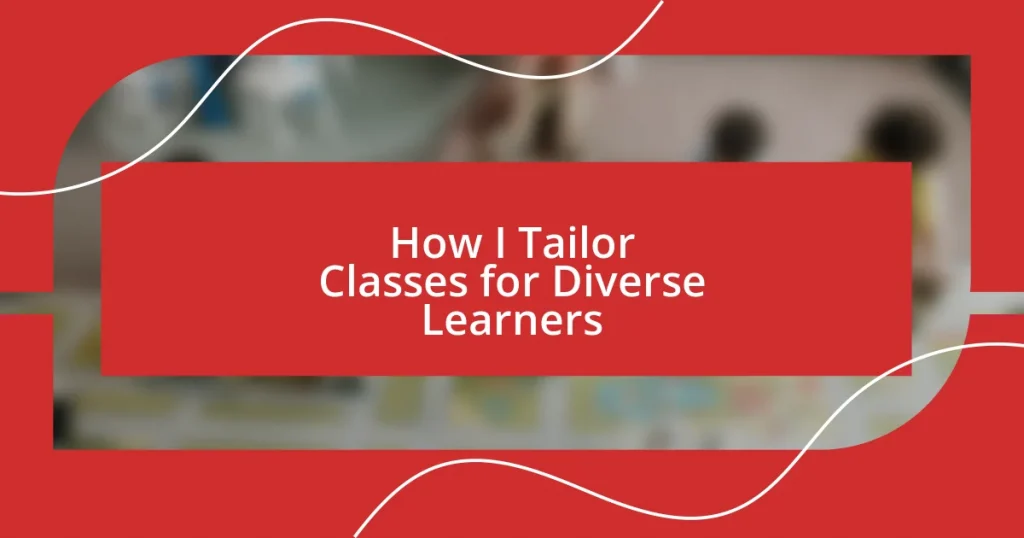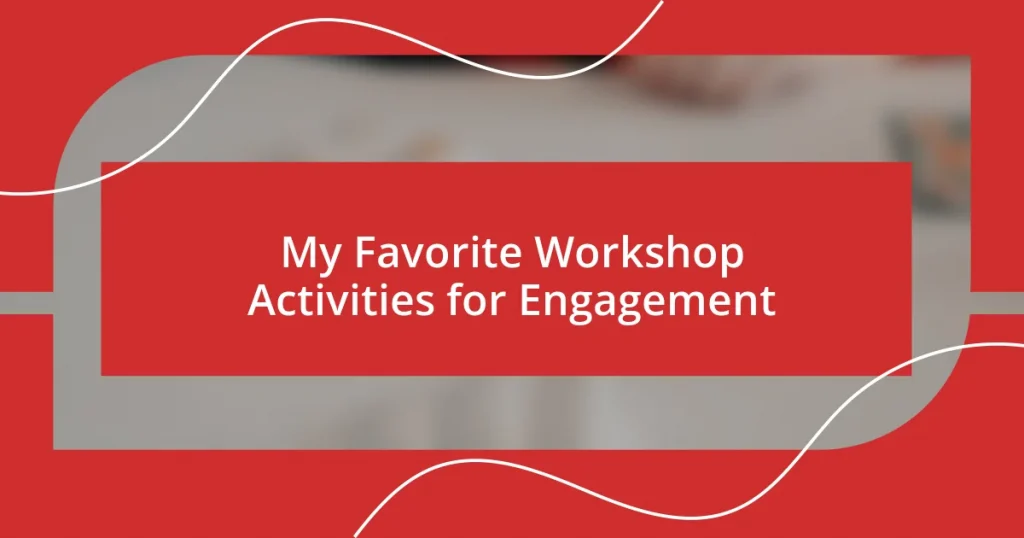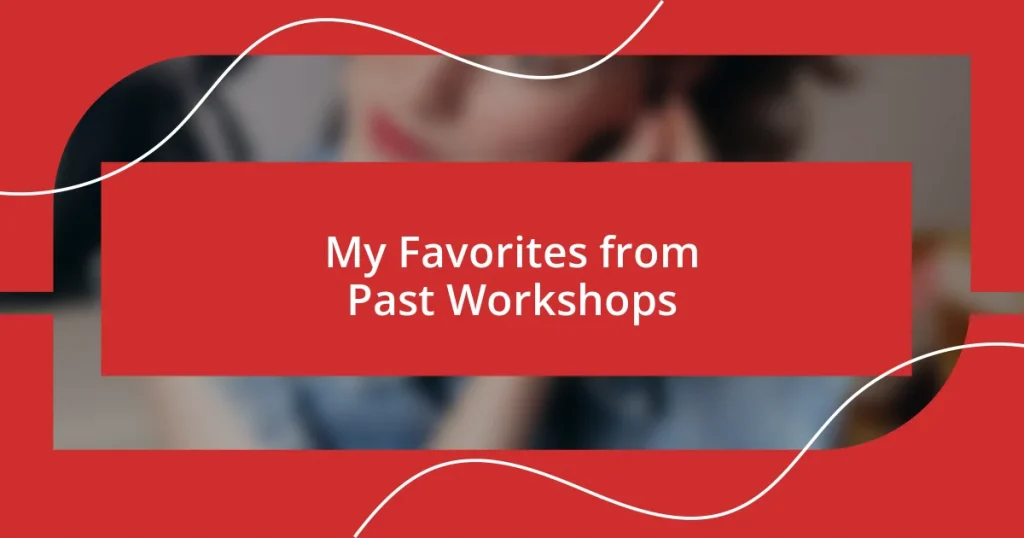Key takeaways:
- Political interviews reveal the human side of candidates, showcasing their values, authenticity, and reactions under pressure.
- Effective questioning techniques, such as open-ended questions and reflective listening, can uncover deeper insights and foster genuine connections.
- Building rapport and managing challenging conversations with empathy and assertiveness can enhance the quality of political discussions and lead to unexpected revelations.
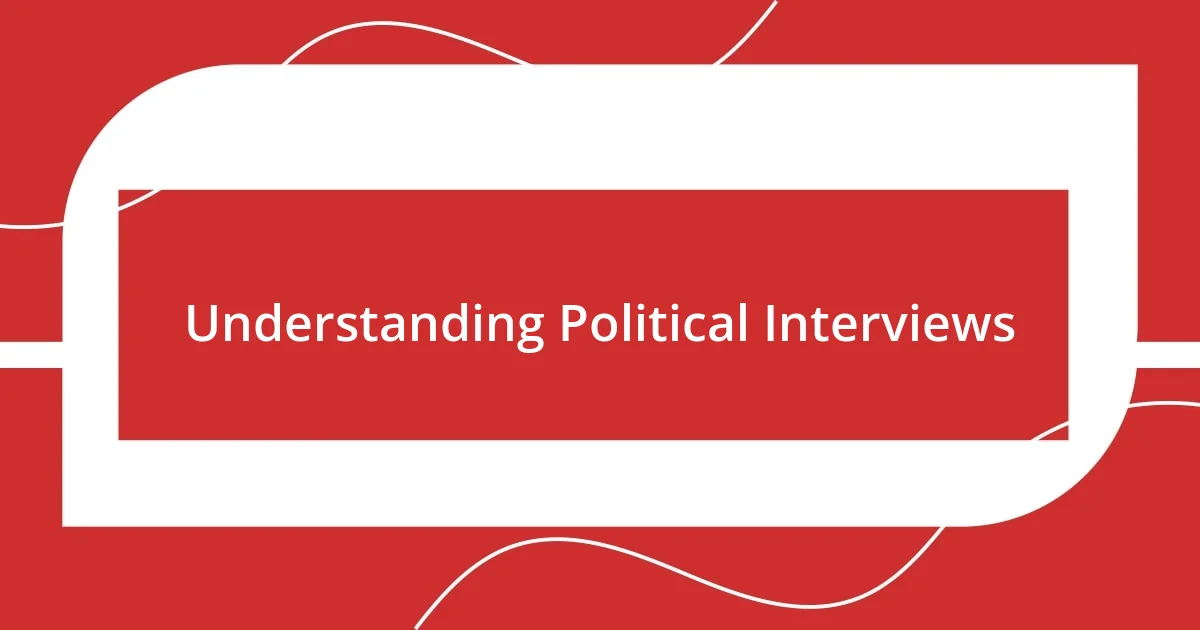
Understanding Political Interviews
Political interviews serve as a critical gateway to understanding a candidate’s mindset and priorities. I remember watching a heated debate during an election cycle, and I felt a surge of empathy for the candidate under fire. It’s fascinating how such moments reveal not just policies, but the human side of politicians—how they cope with pressure, express their values, and connect (or fail to connect) with the audience.
Every question asked in a political interview is a chance to dig deeper into a candidate’s beliefs. I often find myself questioning: What drives their decisions? In one memorable interview, a politician spoke passionately about healthcare reform, and I could feel their conviction. It’s those glimpses of genuine passion that help us as voters decipher who truly aligns with our values, rather than just who plays to the crowd.
Navigating the complexities of political interviews can be challenging, both for the interviewer and the interviewee. One time, I noticed how an interviewer’s follow-up question prompted a candidate to share a personal story that was both revealing and emotional. In that instant, it was clear how effective questioning could unveil deeper truths, transforming what could be a surface-level interaction into a moment of connection and sincerity.
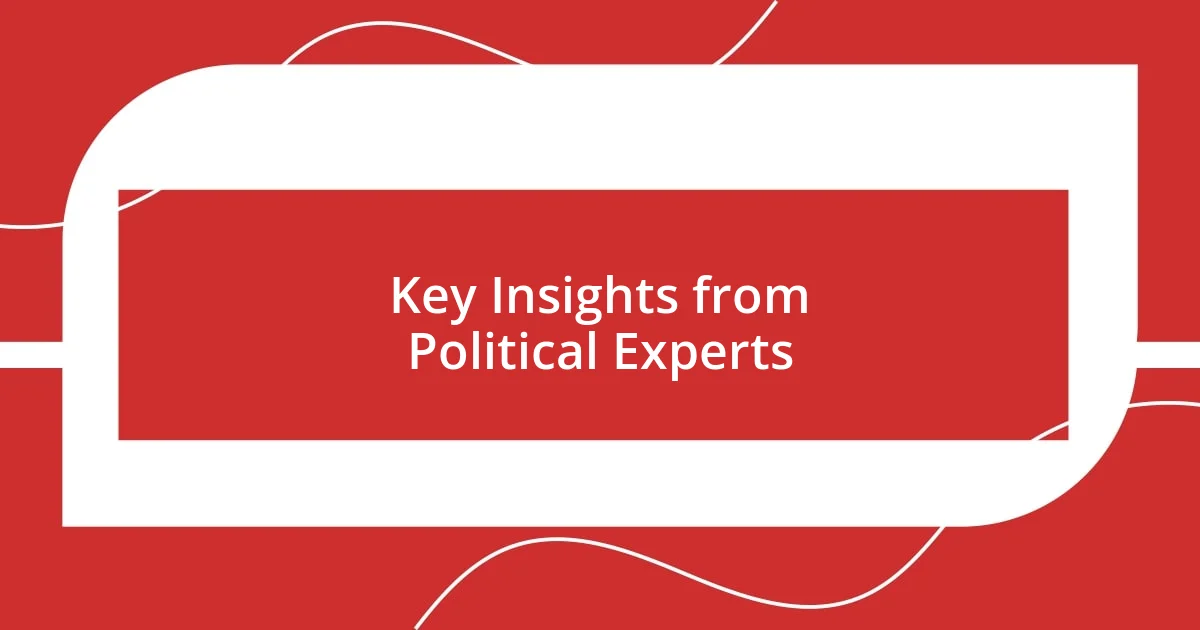
Key Insights from Political Experts
Political experts often emphasize the delicate balance between preparation and spontaneity in interviews. I once attended a panel discussion where a seasoned journalist shared a gripping story about interviewing a well-known politician. The politician had prepared answers for the entire interview, but in a moment of candor, they revealed a personal struggle related to local governance. This unexpected admission shifted the tone of the discussion, reminding everyone that behind the policies, there are real people with real challenges.
- Building rapport is essential for uncovering deeper insights.
- Effective interviewers craft questions that resonate emotionally.
- A politician’s vulnerability can reveal authenticity in their platform.
- Contextual understanding of current events enhances the interview.
- Engaging with follow-up questions can lead to revealing moments.
I find it fascinating how these seemingly small moments during interviews can profoundly alter public perception. During another discussion, an expert pointed out how one moment of genuine emotion can encapsulate the essence of a candidate’s mission and values, making voters feel connected and invested. It’s those instances that linger in our memories, often influencing our decisions when the time comes to cast our votes.
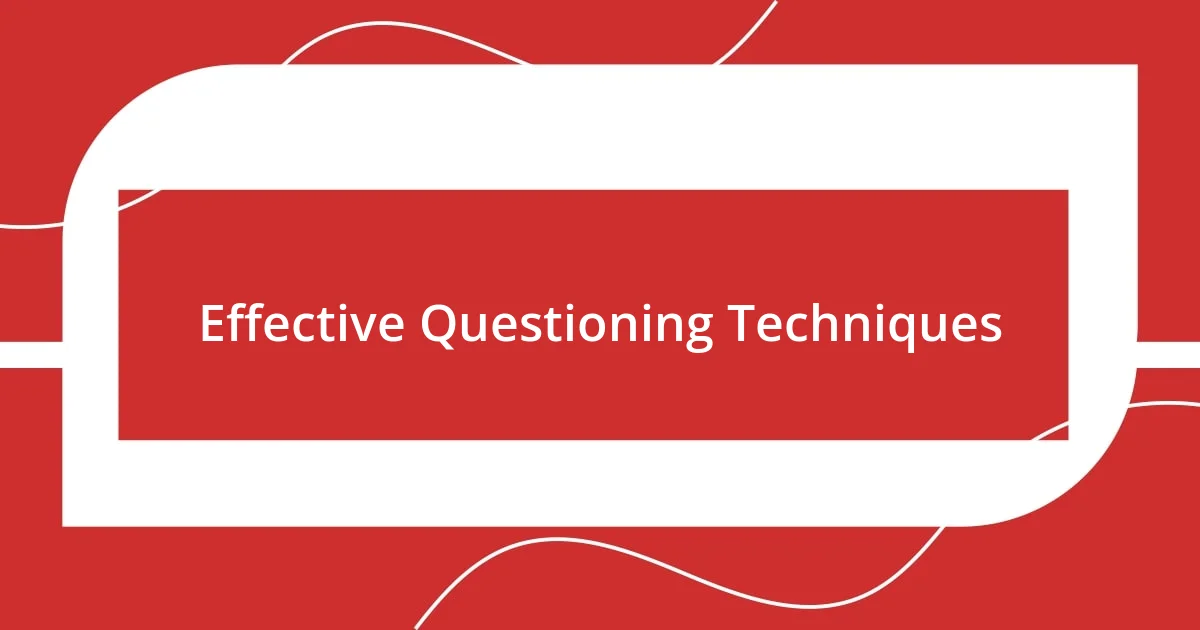
Effective Questioning Techniques
One of the most powerful techniques I’ve observed in political interviews is the art of open-ended questioning. These questions invite the interviewee to share their thoughts and feelings more freely. I once watched an interviewer pose an open-ended question about environmental policy, allowing the politician to discuss not just their plans, but also their childhood experiences with nature. This approach often leads to stories that humanize candidates, giving us a deeper understanding of their motivations and values.
Another effective technique involves using reflective listening, where the interviewer paraphrases or reflects back what the candidate has said, prompting further elaboration. I vividly recall a moment when a reporter skillfully reflected a candidate’s statement on education reform, which led to an unexpected and heartfelt discussion about the influence of their own teachers. This technique can unveil insights that a straightforward question might miss, creating a richer narrative for the audience.
Finally, incorporating hypothetical scenarios can also be a game-changer in interviews. By asking candidates how they would handle certain situations, interviewers can uncover potential decision-making styles and values. I had an enlightening experience watching a political interview where the candidate was asked how they would respond to a sudden economic crisis. Their answer revealed not just policy preferences, but also their fundamental approach to leadership and crisis management, painting a fuller picture of who they are as a person and leader.
| Questioning Technique | Description |
|---|---|
| Open-Ended Questions | Encourages expansive responses, allowing candidates to share insights and personal stories. |
| Reflective Listening | Involves paraphrasing responses to encourage deeper elaboration and insight. |
| Hypothetical Scenarios | Challenges candidates to think on their feet, revealing decision-making styles and core values. |
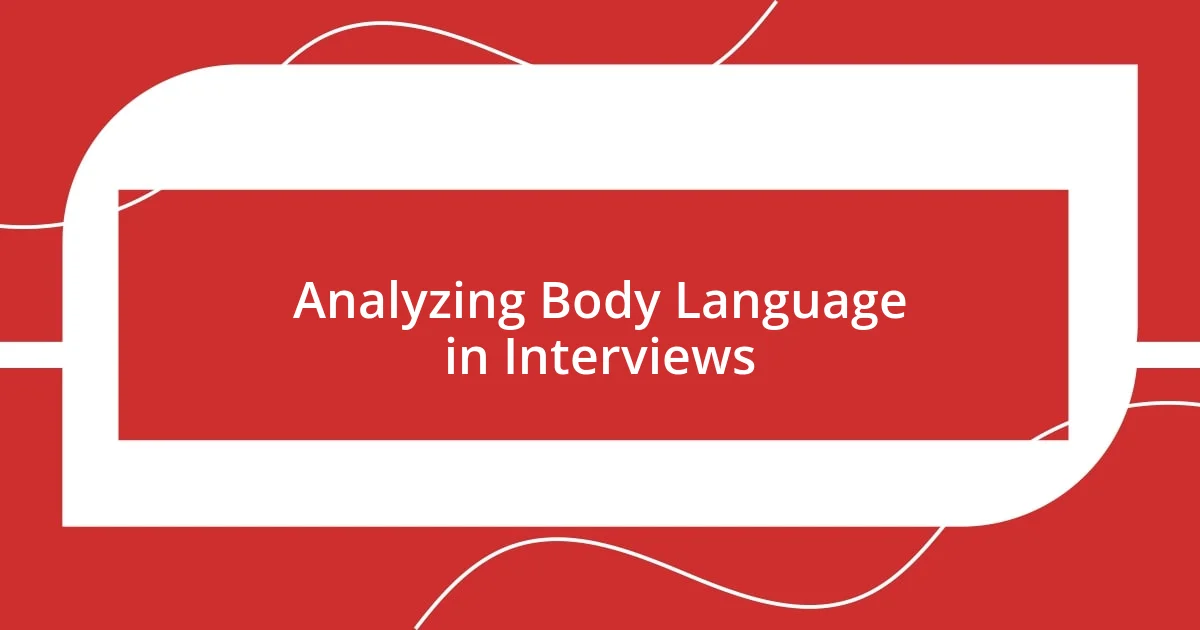
Analyzing Body Language in Interviews
Analyzing body language during political interviews can uncover layers of meaning that words alone might miss. For example, I once observed an interview where a candidate’s posture shifted dramatically from open and engaging to closed-off and defensive when confronted with a difficult question. This change in body language didn’t just reflect discomfort; it illuminated internal conflicts that words alone couldn’t express, making me wonder what deeper issues might lie beneath the surface.
In my experience, eye contact can be a powerful indicator of sincerity and confidence. I recall a moment during a televised debate when a candidate consistently maintained eye contact with the interviewer, creating a sense of trust that resonated with viewers. In contrast, another candidate frequently glanced away, which raised questions about their authenticity and willingness to engage. Have you ever noticed how a simple gaze can either draw you in or push you away?
Moreover, gestures can add richness to a candidate’s narrative, helping to emphasize points and convey passion. Watching a politician animate their discussion with hand movements, I felt an emotional connection that transformed their message from mere rhetoric into something more personal and impactful. It’s fascinating how these subtle cues can shift our perceptions and influence our opinions, don’t you think?
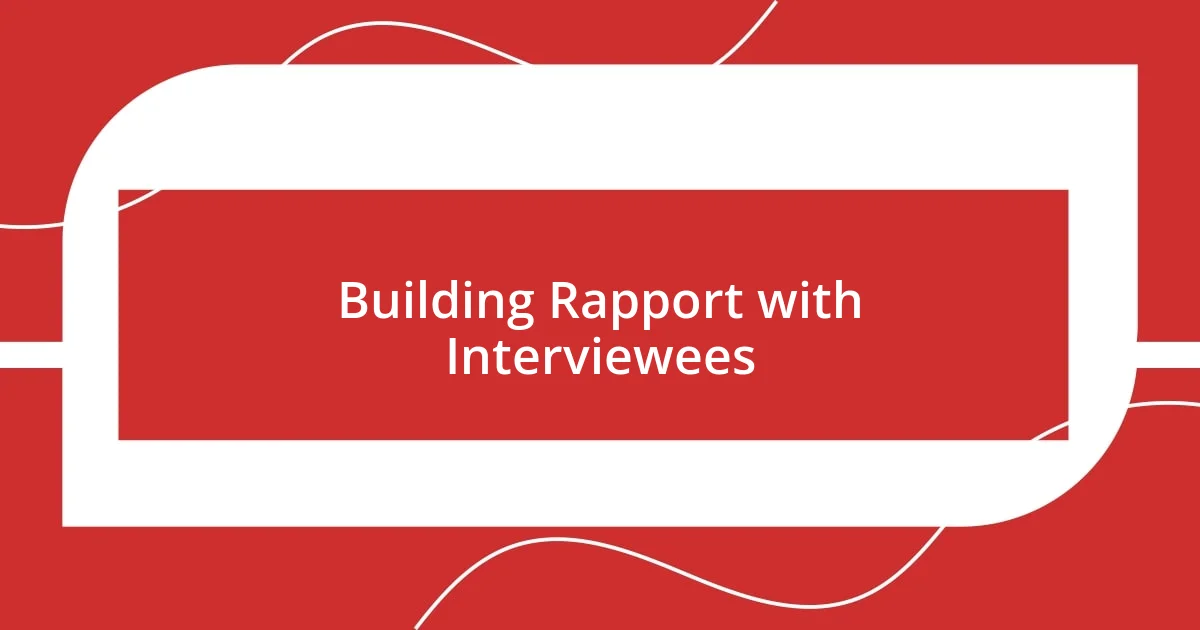
Building Rapport with Interviewees
Establishing a connection with interviewees is crucial, especially in political conversations. I remember a specific interview where the host began with lighthearted banter about a local sports team, instantly easing the tension. The candidate’s smile widened, and suddenly the discussion transformed into a more genuine exchange, allowing for deeper insights into their character and policies. Isn’t it fascinating how a simple shared interest can break down barriers?
Another strategy I’ve found effective is mirroring the interviewee’s energy and language. During a particularly intense interview, I noticed how an interviewer matched a candidate’s passionate tone about social justice issues. This approach not only signaled empathy but also created an environment conducive to open dialogue. It made me think, can energy be contagious? In this case, it surely was, drawing out the candidate’s most authentic responses.
Moreover, taking the time to acknowledge the interviewee’s achievements can go a long way. I recall an interviewer sharing a genuine compliment about a candidate’s innovative education policy, which visibly brightened the politician’s demeanor. This small gesture invited the candidate to elaborate on their motivations and intentions, creating a richer narrative. Why do we often overlook the power of appreciation in dialogue? It seems to me that recognizing someone’s efforts can pave the way for a more meaningful conversation.
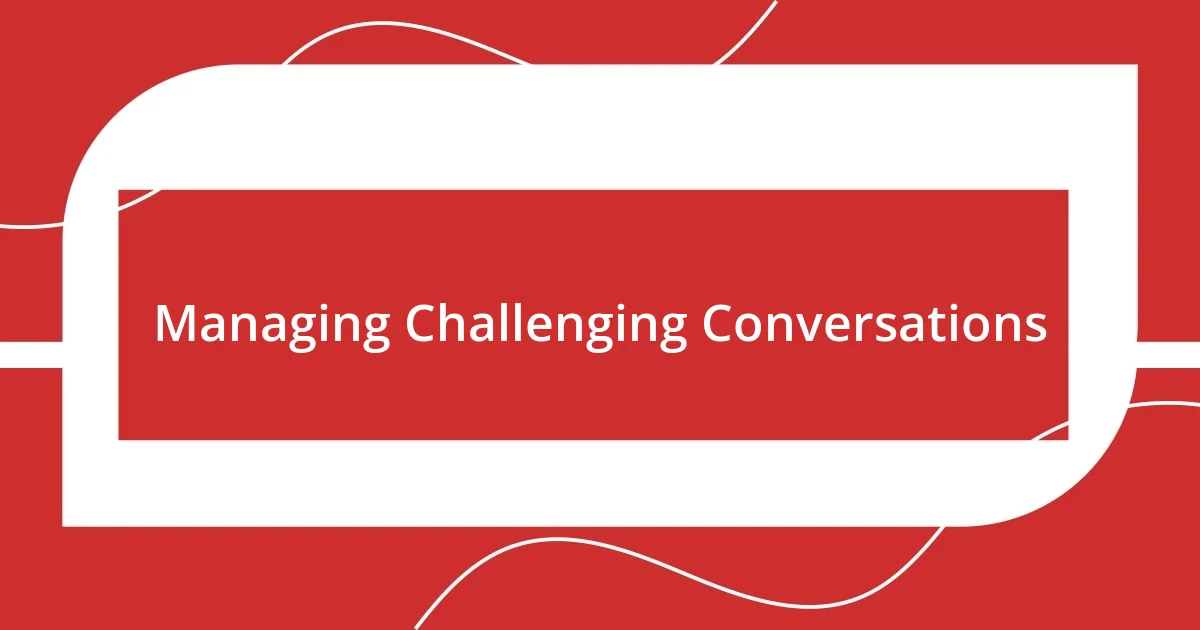
Managing Challenging Conversations
Managing challenging conversations in political interviews is an art form that requires a delicate balance between assertiveness and empathy. I recall an interview where the interviewer faced a particularly evasive politician. Instead of pressing harder, they paused, allowing the silence to linger. This moment of stillness encouraged the politician to reflect and ultimately share a more candid response. Have you ever noticed how sometimes, giving someone space can yield unexpected honesty?
Navigating tough topics often involves remaining calm and collected, even when emotions run high. I experienced this firsthand during a heated debate segment when one candidate became visibly frustrated after being challenged. The opposing candidate managed the situation gracefully, acknowledging the frustration and redirecting the focus back to the questions at hand. It made me realize how vital it is to maintain composure, as it fosters respect and encourages civil discourse, don’t you think?
Ultimately, addressing concerns directly can also be a transformative approach. During an interview, a host confronted a candidate about a controversial statement they had made. Rather than deflecting, the candidate embraced the question, providing context and apologizing when necessary. This authenticity resonated with viewers and turned a potentially combative moment into an opportunity for growth. It’s moments like these that reinforce my belief in the power of vulnerability in difficult conversations.
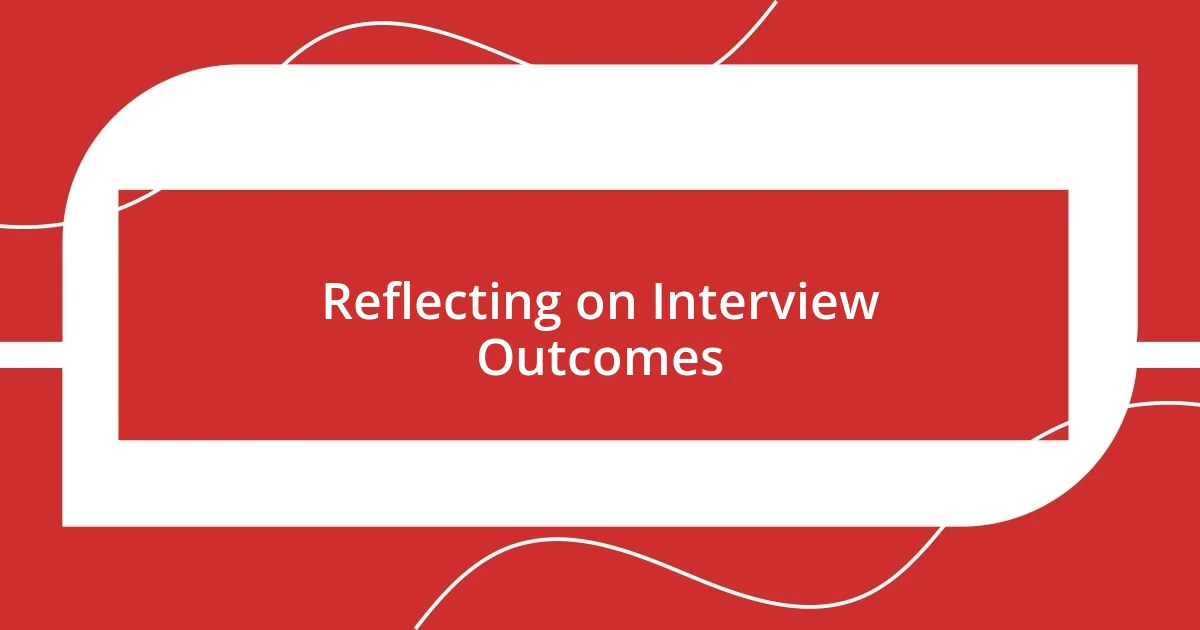
Reflecting on Interview Outcomes
Reflecting on the outcomes of political interviews often reveals unexpected layers of nuance. I once watched an interview where a candidate, initially perceived as unapproachable, exhibited a profound shift after tackling a deeply personal question. It made me wonder—do we often forget that vulnerability can lead to revelation? That moment left me pondering how crucial it is to create an environment where authenticity is not only welcomed but encouraged.
During another interview, the outcome diverged from expectations. A seemingly rehearsed response from a candidate was met with a follow-up question that caught them off-guard. The slight pause that followed was revealing; it reflected a crack in the armor of their carefully curated persona. Engaging with that hesitation can unlock deeper insights into their beliefs—have you ever noticed how a single question can change the course of a conversation entirely?
What truly stands out to me is the power of reflection post-interview. After a politically charged discussion, I often find myself evaluating not just the candidate’s responses but my own approach as well. I remember a time when I felt uneasy about how I framed a question, questioning its fairness. This internal dialogue is essential for growth. Isn’t it fascinating how self-reflection can reshape our understanding of the interview process? Engaging thoughtfully with these reflections enhances future interviews, deepening our grasp of both the political landscape and the nuances that come with it.
